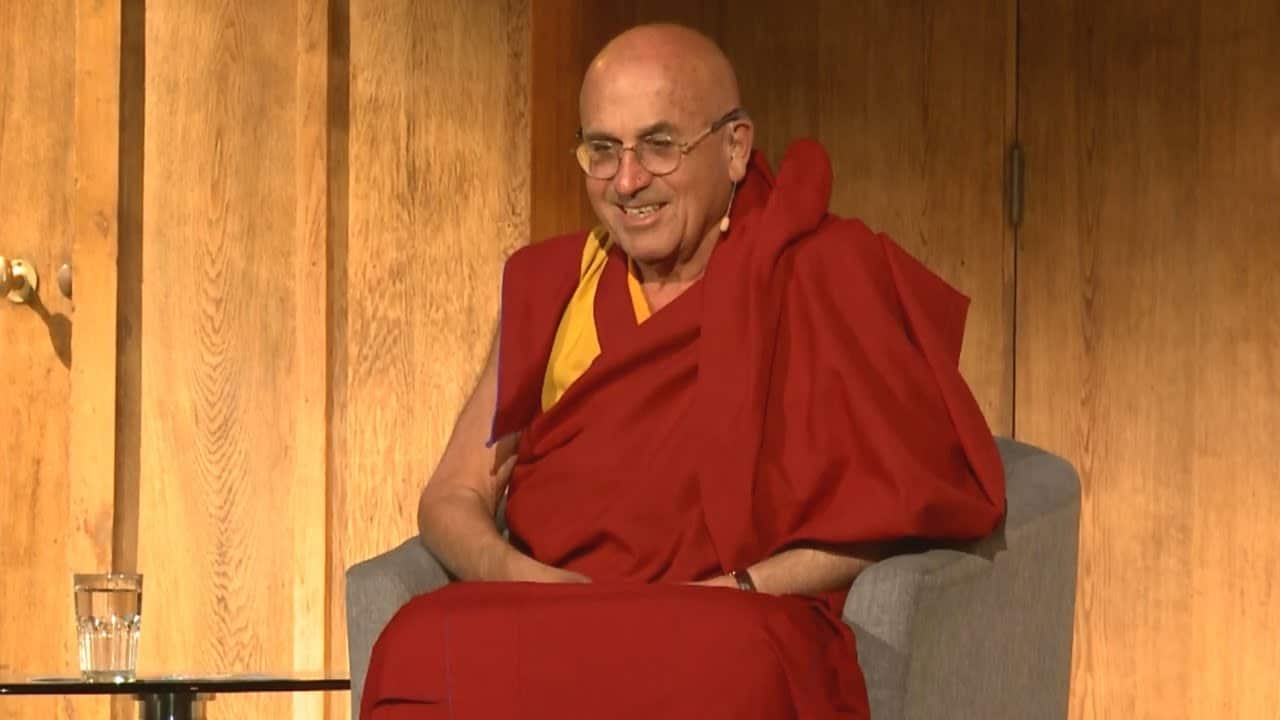The “happiest person alive,” a Buddhist monk, has revealed his formula for happiness.

Ironic as it is, it seems true.
The most sought-after object on the globe is probably the secret to happiness. Some people think that love is the answer, while others think that owning a Tesla or skydiving are better options.
But anyone who has reached their life goals only to discover they’re still not happy will be fully aware that those positive emotions must originate from inside.
Ironically, it appears when you least expect it.
Just ask Matthieu Ricard, a former scientist from France who abandoned his profession and relocated to the Himalayas to become a Buddhist monk after receiving a PhD in molecular genetics.
The 76-year-old, who meditates for hours on end, was named the “happiest person alive” following a lighthearted study by the University of Wisconsin.
The monk’s skull was connected to 256 sensors by neuroscientists, and they learned from this that during meditation, Ricard’s brain produced gamma waves at previously unreported levels associated to awareness, attention, learning, and memory.

The scans also revealed unusually high activity in the left prefrontal cortex of his brain compared to the right, indicating that he has a heightened potential for happiness and the reverse for negative.
In other words, he has some knowledge of the key to a happy existence, and with his practices in mind, he is more than pleased to impart his knowledge to the rest of humanity.
Back when he spoke to Business Insider at the World Economic Forum in Switzerland, he emphasized how crucial it is to cease thinking selfishly.
“It’s not moral grounds, it’s just that me, me, me all day is really stuffy,” he added.
And it’s quite depressing because you see the entire world as a threat or a possible source of interest to you.
Aspiring towards “benevolence” is what Ricard advises doing if you want to be happy.
It is a really healthy state of mind that is favorable to flourishing, he added, “if your mind is filled with compassion, you know, the enthusiasm and solidarity.”
Therefore, you are in a lot better mental condition than you were before. It has also been demonstrated that your body will be healthier. Additionally, others will see it favorably.
Let’s give it a go.
Of course, humans are predisposed to live an individualistic existence in society, particularly in the western world.
Our brains are frequently racing and scanning for problems, but that doesn’t mean we can’t improve things with a little time and effort.
Ricard continued, saying: “We may constantly raise [our degree of happiness] by mental training.
“It resembles running. I might run a marathon if I train. Even if I may not win an Olympic gold medal, there is a significant difference between training and not training. Why then shouldn’t the mind be affected by that?
There is a belief that virtues like kindness, focus, emotional stability, and resilience can be learned.
The cheerful guy himself has shown how individuals may accomplish this using a straightforward approach, provided they don’t have a significant mental disease, in which case it’s crucial to seek expert assistance.

He advises contemplating cheerful thoughts for 10 to 15 minutes each day; no, we don’t imply exacting revenge on your adversaries.
Try to imagine doing something kind for someone else; even just recalling a happy memory from your past would do.
Long-term mental advantages from focusing on these good feelings may be attained by giving them more time than a few seconds, and results can be shown in as little as two weeks.
And if you persist in this behavior over an extended length of time, well, we saw what happened to Ricard. He didn’t suddenly start living the happiest life.


